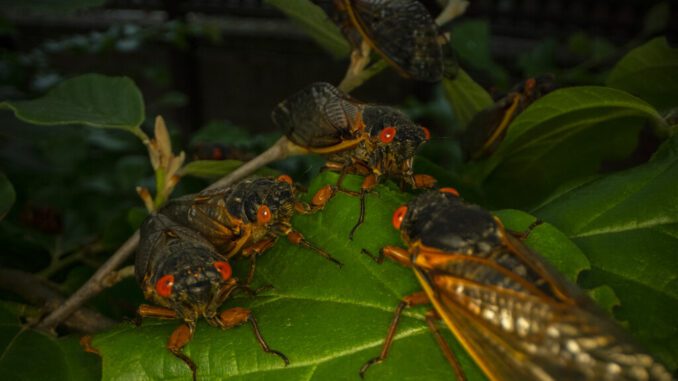
A reasonable person living in the United States over the past seventeen years might have been occasionally tempted to emulate a type of cicada that lives in the regions around Washington, D.C.
This insect — known as Brood X — spends most of its 17 years sheltering underground.
When the soil grows warm enough in the spring of its final year, as described in the 1995 edition of the Annual Review of Entomology and a 2004 story in the Daily Telegraph of London, a Brood X cicada crawls to the surface, mounts a tree, mates, leaves its eggs in the limbs of that tree, and then falls to the ground dead.
The baby bugs born from those eggs, starting their own 17-year life cycle, also eventually fall to the ground. But they dig themselves holes to live in and attach themselves to roots that can sustain them, as they live unseen in their subterranean sanctuaries.
The 17-year cicada cycle is a unique way of marking life around our nation’s capital.
When the United States was founded in 1776, the generation of cicadas then alive had been underground for 10 years. They did not reemerge until 1783, missing the entire Revolutionary War.
Since then, there have been 14 generations of these insects.
Many of these cicada generations were in their subterranean mode when this nation was meeting and overcoming great crises. The cicadas born in 1800 were underground during the War of 1812; those born in 1851 were underground for the Civil War; those born in 1902 were underground for World War I; and those born in 1936 were underground for World War II.
Just two cycles ago, it was 1987. The cicadas born that year were the parents of the generation that is emerging, mating and dying now.
When those cicadas were underground in 1989, the Berlin Wall came down — and the free world won the Cold War against Soviet Communism.
But when they were still underground in 2001, al-Qaida terrorists hijacked four American commercial jets and flew them into the World Trade Towers, the Pentagon and a field in central Pennsylvania.
Three years after that, when those Brood X cicadas finally emerged to create the next generation, the United States was at war in both Afghanistan and Iraq.
But while the cicadas born in 2004 have reemerged and are passing life to a new generation, their lifespan may have marked a period when America started digging a fiscal hole from which it may never emerge.
Seventeen years ago, on the last day of May 2004, as the current generation of cicadas was being created, this nation’s federal debt was $7,196,382,805,621.99, according to the Treasury. By the last day of April 2021, as the current cicada generation was about to reemerge, the debt had risen to $28,174,714,484,167.37. That was an increase of $20,978,331,678,545.38.
While the current generation of cicadas has been alive, this nation’s debt has almost tripled — increasing by 291.5%.
In 2018, the latest year on record, 100,424,240 federal individual income tax filers had “taxable returns,” according to the IRS. That means they paid a net income tax to the federal government. That also means the $28,174,714,484,167.37 in federal debt as of the end of April equaled approximately $280,557 for every one of those income-tax-paying filers.
Meanwhile, the federal government paid approximately $522.652 billion in interest on Treasury securities in fiscal year 2020.
A new generation of cicadas will soon be burrowing into the earth in our nation’s capital and its surrounding areas.
What the current generations of Americans must determine is this: How deep a hole will we have dug for ourselves when — 17 years from now — those creatures crawl back into the light?
Terence P. Jeffrey is the editor in chief of CNSnews.com.




